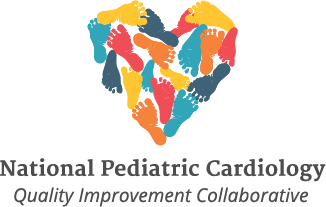
HEALTH EQUITY
Global Aim:
NPC-QIC is committed to increasing survival and improving quality of life equitably for infants with single ventricle congenital heart disease and for families of every socioeconomic background, race, and ethnicity.
The events of 2020 have focused national attention on important issues in our society around socioeconomic, racial, and ethnic differences that are associated with systemic inequities. For our NPC-QIC population, this can manifest in multiple ways, including disparities in access to care, social and financial supports, and a host of health outcome measures.
In response to these events, NPC-QIC’s Fall 2020 Virtual Learning Session featured a health equity plenary that focused on recognizing socioeconomic, racial, and ethnic disparities and inequities. Presentations included an Ignite Talk by American Board of Pediatrics President Dr. David G. Nichols in addition to presentations by Drs. Keila Lopez, Shabnam Peyvandi, and Ndidi Unaka, whose bios and session replays can be found below.
Public Calls to Action for NPC-QIC
Dr. David G. Nichols, President and CEO of The American Board of Pediatrics, shared four calls to action for NPC-QIC in our health equity journey. We encourage other institutions to join us in the calls to action listed below. We are committed to keeping you up to date with our progress in this journey toward health equity. We invite your institution to share with us your commitment to equity by emailing info@npcqic.org.
Set a public Global Aim to eliminate congenital heart disease disparities. You can find NPC-QIC’s aim at the top of this page.
Keep an up-to-date disparities dashboard on your institution’s website (learn more here).
Improve the science of healthcare disparities research with innovation in accounting for trends in geographic location, surgical volumes, hospital trends, and implicit bias.
Analyze data for health disparities in the following areas to understand why these disparities exist and what can be done to reduce disparities.
Care processes
Intermediate outcomes
Mortality
You can find more information about NPC-QIC’s efforts to analyze data for health disparities here.
Ignite Talk: Health Equity
Dr. David G. Nichols
President and CEO
The American Board of Pediatrics
As the leader of the American Board of Pediatrics (ABP) and a member of the Board of Directors, Dr. Nichols actively promotes high-quality health care for children by upholding the standards of certification in pediatrics, and by encouraging and facilitating initiatives in quality improvement. He has been associated with the ABP for more than 20 years, assuming his leadership role in late 2012. Dr. Nichols is board certified in General Pediatrics and is maintaining certification in Pediatric Critical Care Medicine.
Addressing Health Disparities in CHD Populations
Dr. Keila N Lopez
Texas Children’s Hospital/Baylor College of Medicine
Dr. Keila N Lopez is an Assistant Professor of Pediatrics in the Division of Pediatric Cardiology at Texas Children’s Hospital/Baylor College of Medicine. Her research portfolio reflects a longstanding commitment to addressing health disparities, and she leads research and quality improvement multidisciplinary efforts to better understand the connection between health, socioeconomic status, race/ethnicity, neighborhood level factors and access to quality healthcare.
Understanding & Engaging the Diverse Populations We’re Working With
Dr. Shabnam Peyvandi
University of California San Francisco
Dr. Shabnam Peyvandi is an Associate Professor of Pediatrics, Epidemiology and Biostatistics at UCSF. She is a pediatric and fetal cardiologist. Her research focus is on neurodevelopment outcomes and social determinants of health among patients with congenital heart disease.
Forgotten in the Margins
Dr. Ndidi Unaka
Cincinnati Children’s Hospital
Dr. Ndidi Unaka is an Associate Professor in the Division of Hospital Medicine at Cincinnati Children’s Hospital where she has served as the Associate Program Director (APD) of the Pediatric Residency Program since 2011. She is also the medical director of an inpatient unit that serves as the primary home for patients admitted to the Hospital Medicine service. Dr. Unaka also focuses on institution-level community health initiatives which reflects her passion for diversity, inclusion, and health equity.
